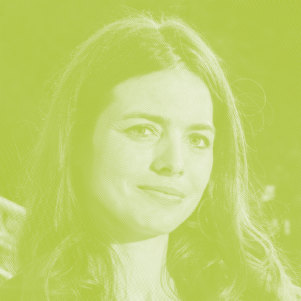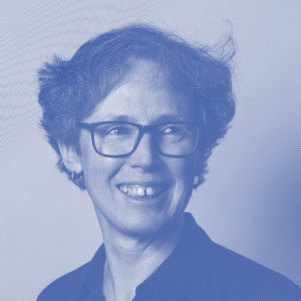I am a senior assistant professor at the Faculty of Communication Sciences at Università della Svizzera italiana (USI) in Lugano. I do research on argumentation, which can be described as dialogue aimed at finding a reasonable solution to a disagreement. My focus is on argumentation in conflict resolution and in sensitive relationships (e.g. family relationships, conflict prevention). I’m a research-oriented person and a passionate teacher.
I’m passionate about contributing to society through research. For me, argumentative dialogue is one of the keys to tackling disagreements between individuals and in the broader society ; it’s also a way of making disagreement a force for change and interaction and a way of preventing violent conflict and sterile confrontation. I love doing research and working with PhD students and colleagues. When I feel guilty that I’m not with my children, I remind myself that I’m trying to make a better society for them to live in.
My career path. My love for what I do has helped me a lot, as have all the passionate and supportive people around me. This network includes my husband (and children), other family members and friends, but also a number of colleagues who helped me a lot in the early years. A key moment for me was the transition from doctorate to postdoc. I left for the UK immediately after my second child was born, and I had to think about my development, my interests and my possible career paths. It was a difficult time, but I was lucky to be able to talk a lot with a senior colleague, who was a great professor and a high-profile scholar who also had children. She always encouraged and listened to me, but never pushed me. That relationship gave me hope and helped me to continue working.
I owe a lot to the Swiss scientific and academic system : I was given the chance to develop my own research group as an assistant professor, to go abroad with fellowships from the Swiss National Science Foundation (SNSF) and to obtain funding for my research. At USI, I collaborate with the equal opportunities service – I think they are doing a lot to raise awareness about the ‛issues’ faced by female academics.
A downside or obstacle ? The difficulty of striking the right work-family balance for a mother of young children should never be taken for granted. I’m constantly struggling to define ‛my way’ of doing this job, and my strengths and limits. This is partly because there are practical problems to solve and partly because of a purely cultural problem. The obstacles aren’t really there – they are created by people’s misconceptions of women in academia.
Although I work in the humanities, the male professors still outnumber the female ones. Like I said, the obstacles are partly objective (career mobility, intensity of work, work-life balance, etc.) and partly cultural. By cultural I mean that I often encounter prejudices (“you have children so you cannot do this”), and I know from other, junior colleagues that they do too (“you might have children at some point so I do not trust you”). I really hope that at least the cultural part will change soon.
I’m proud of championing an approach to argumentation that sees argumentative dialogue as an alternative to conflict and a dialogic way of transforming disagreement.
I’m proud of having established a small research group of passionate PhD students who work on this topic at USI in collaboration with other national and international colleagues. I am also proud that I work full time with three children – with a husband who also works full time in research ; I’m proud every time we smile at our less-than-perfect balance.



